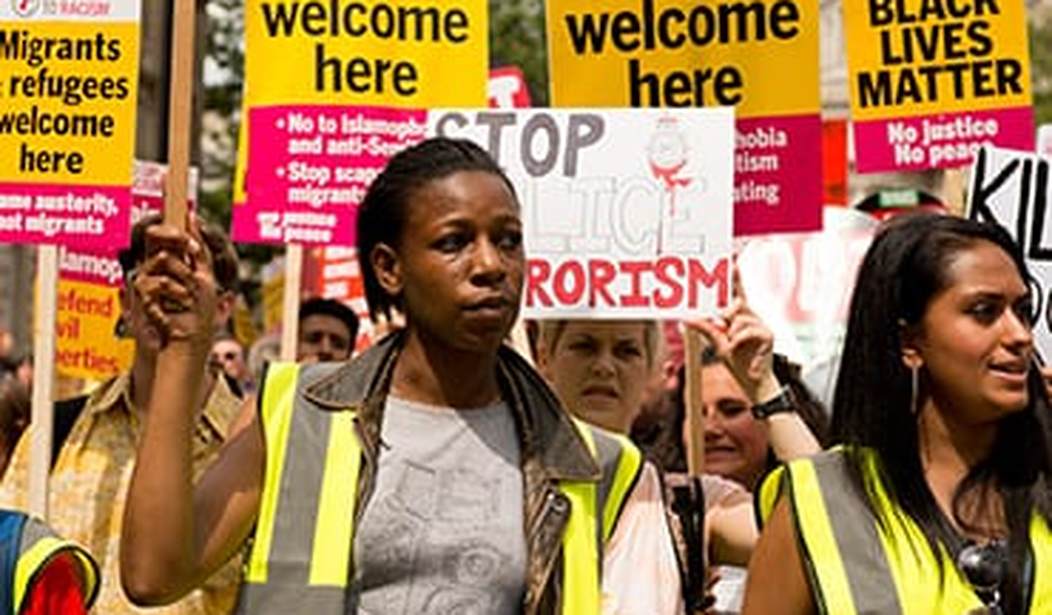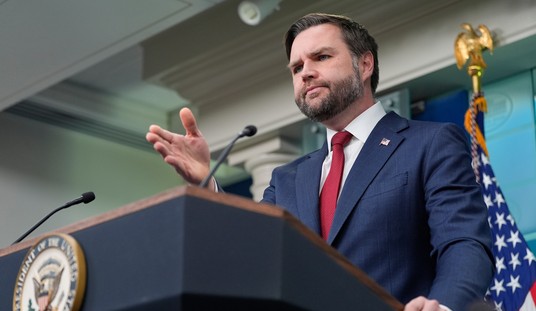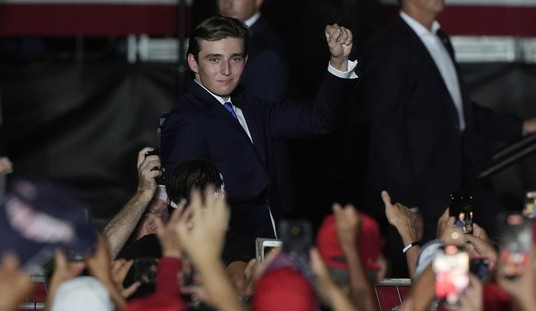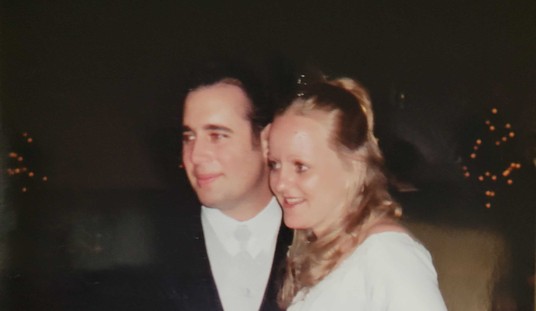In both Canada and the U.S., the political scene is utterly dismal. As I survey the ongoing debacle in my own country, it is hard not to lose faith in the mental competence of an electorate that swept a flawed but generally competent Conservative government out of power and replaced it with a corrupt, cynical and hopelessly inept Liberal administration that is busy running the country into the ground. Former Conservative PM Stephen Harper made his share of mistakes, but he was a fundamentally decent leader who left the country in sound economic shape. The argument advanced by many anti-Harperites that bottom-line thinking violates the greater desiderata of compassion—a uniquely Canadian value, apparently—is sanctimonious hogwash. A stable economy is the best antidote to the spread of statist-driven destitution, rising unemployment and government dependency. Harper’s successor, the vapid and emptily speechifying Justin Trudeau, has budgeted the country into a $30 billion debt—which, according to a just released Toronto-Dominion Bank report, will jump by an additional $5 billion this year.
The report goes on to posit: “When the Liberals unveiled the federal budget in March, they projected a $29.4-billion deficit in 2016-17, followed by a $29-billion shortfall the following year and almost $23 billion in 2018-19”—a new, three year debt of $81.4 billion. On the face of it, this should have been a tough sell. “Trudeau’s first budget,” asserts the Canadian Taxpayers Federation, “is an absolute disaster for future generations & thus Canada.” The Halifax Chamber of Commerce concurs: “Running chronic deficits with no plan to balance the budget has proven to be bad news for Canada’s economy.” No matter. According to MP for Elgin-Middlesex-London Karen Vecchio, the Liberals have spent $200,000 on “deliverology” advice, paying a British consultant to advise them on the best way to “deliver” their agenda and to convince taxpayers that debt is good. An infatuated electorate appears to be buying in.
Trudeau didn’t stop there. He has imported thousands of “Syrian” refugees to swell the welfare rolls and ensure future havoc, declared himself a loyal feminist while visiting mosques where the sexes are segregated, and installed a young Muslim cabinet minister, Maryam Monsef, as “Minister of Democratic Institutions” who, as it now turns out, lied about her birthplace and various other items on her citizenship papers. Providing false information makes a person inadmissible to Canada or demands the stripping of citizenship rights, regardless of extenuating circumstances. (Monsef claims that her mother suppressed certain salient details about her birthplace and early residency, which was not Afghanistan but Iran.) Many leftist sites, such as the Canadian Progressive (and others) blame Harper for passing an “unfair law”, but as The Toronto Sun points out, the policy predates the Harper government. Truth never deterred a leftist.
Pro forma, Trudeau has overseen a motley crew of ministerial parasites billing the taxpayer for personal expenses and perquisites. His latest gambit is to impose a pan-Canadian carbon tax to combat “global warming” that will cost the average Canadian in the vicinity of $2,500 over the next few years in excess of the depredations of an already punitive tax structure. But plainly, the fast-expanding debt has to be serviced and the “Syrian” influx paid for. The fact that global warming is non-existent—as anyone who has troubled to do a little serious research would recognize—counts for nothing; the Warmist scam is too lucrative and politically expedient to be abandoned.
The catastrophic farce in which we are now embroiled should have been glaringly predictable to any reasonable person prior to the election. Those who voted Liberal were, for the most part, either among the urban affluent or the collectively oblivious.
The same set of debilitating factors is patently at work in the United States.
An electorate that twice endorsed the weakest and most destructive president in the history of the republic, bar none, now seems poised to elevate a party successor whose record of political failures, poor judgment, perforated memory, Alinskyite sympathies, marrow-deep mendacity and fiscal malfeasance—the money trail is a long and winding road—staggers the imagination. The list of her scandals stretches back 25 years, writes Bruce Thornton in a capsule summation, “from cattle futures, the Rose Law firm, Whitewater, and brutally managing Bill’s bimbo eruptions; to server-gate, email-gate, pay-for-play Clinton family foundation, auctioning off the State Department, collusion with the FBI, and giving perjurious testimony to Congress.” Hillary Clinton is clearly beyond redemption. The Mephistophelian candidate par excellence, she does not have a single accomplishment to her credit and, indeed, every initiative she has pursued as secretary of State has led invariably to disaster. Libya is in shambles. Egypt is in turmoil. Syria, whose bloodthirsty president Bashar al-Assad she once praised as a “reformer,” is hell on earth. Russia, with which relations were supposed to be “reset,” is an adversary on the march. (She even got the Russian word for “reset” wrong, translating it as “overcharge.”—not the kind of thing that recommends a senior diplomat entrusted with highly sensitive negotiations.)
Writing in the American Thinker, PJM’s Rick Moran points out that the Project Veritas videos have revealed the extent and nature of Clinton’s undoubted felonies—“inciting violence, vote-rigging, conspiracy to commit voter-fraud, breaking campaign finance laws,” and so on. Yet she is, so far as we know, currently leading in the polls. How is this possible? Her ascent to power and acclaim testifies not only to her remorseless ambition and unscrupulous conduct but, more significantly, to the precipitous decline of civic responsibility and political awareness.
Any sentient voter should be wary of the dubious effect of the family dynasty. Two Trudeaus in Canadian politics have materially damaged the country. The father, Pierre Elliott Trudeau, at least possessed an intellect, but his tenure in office, considered in retrospect, was a national disaster: the onslaught of multiculturalism fracturing the nation into contending identity groups, the needless patriation of the Constitution that helped to ramp up the Quebec independence movement, and the National Energy Program that nearly bankrupted the oil-producing province of Alberta and alienated western Canada, must be laid at his door. The son is an effeminate presence, living off the family name and trust fund, whose projects, as we have seen, are destabilizing the economy and increasingly fraying the collagen of cultural unity, as his contradictory addictions to feminism and Islam have made painfully obvious—at any rate, to the residually alert.
Americans for their part have suffered two maladroit Bushes and appear ready to empower a second Clinton, as if the first, a serial philanderer, a shrewd operator, a paragon of insensate greed and a foreign policy dotard, were not sufficient motive to avoid the family like the plague. Dynasties and family compacts can only trend from bad to worse. Mutatis mutandis, in politics, as in business, the “second generation” syndrome is almost always a harbinger of ruin.
Which leaves us with the problem of an electorate that cannot think rationally, that is impervious to common sense, that has little or no knowledge of civics and history, that instinctively swallows the junk food the media feeds it and that is incapable of or resistant to the simple practice of fact checking that the Internet had made instantly available. As Virginia Postrel says in The Future and Its Enemies, “we rarely realize how much knowledge we have access to”; nevertheless, we “fall prey to statist rhetoric that promises to dumb down the world.” We know that the younger, ostensibly educated generation has become a lost cause, thanks to the re-education camps our universities have become. As David Risselada writes in Freedom Outpost, “We are at the point now that many people in the younger generations simply have no idea about the true history of our country, or the meaning of her constitution because the left has been in firm control of nearly every institution we have held dear, for decades.”
But the moral and intellectual condition of the adult generation is no less dispiriting. The affluent who believe they can continue to prosper under repressive and wasteful regimes have no incentive to consider the larger issues affecting their country in the long run or the harm their voting preferences will cause. The same applies to the barnacles clinging to the ship of state, profiting from cronyism and entitlements. And the oblivious seem to constitute a majority or near-majority. Political narcosis on a communal scale is not easily countered or remedied.
The result is that democracy is now severely threatened. A metastasizing left-wing cultural shift, predicated on selective avarice and collective ignorance and benefiting an “elite” of plutocratic socialists, media quislings and political apparatchiks—the Caviar Left, as Thornton puts it—as well as the self-identified victim groups and “oppressed classes,” has rendered the electoral process next to redundant. Italian neo-Marxist Antonio Gramsci’s “counter-hegemonic” struggle, as it has come to be known, an ideological strategy for socio-cultural revolution to empower what he called the “subaltern class” and overthrow the dominant bourgeoisie, has met with unparalleled success. His influence has been pandemic, even among people who have never heard of him, who, impelled by cultural forces, insensibly carry out his directives. (Gramsci’s plan for the intellectual and moral subversion of the West is fully developed in his Prison Notebooks, essential reading for those interested in charting our descent into the political abyss.) The travesty of political and cultural life, the epistemic aneurism of the electorate, that is coming to fruition at this very moment was prepared by the slow, insidious Marxist revolution carried out by the Gramscian sappers.
Far too many of us either don’t care or don’t know, that is, are either indifferent or comatose. Winston Churchill’s famous quip that a five-minute conversation with the average voter is the best argument against democracy now seems truer than ever. Of course, it is also the best argument against any conceivable political system, but one might have thought—or hoped—that a public with the advantages a democratic nation provides with respect to educational opportunities and non-coercive principles and usages should be capable of independent reflection and prudent decision-making. Or, weary of reduced prospects, joblessness and the indignity of welfarism, might be expected to vote their interests.
What, then, is one to do when one loses faith not only in the political establishment but in the electorate as a whole? Will millions of voters come to their senses in time to prevent social collapse? What is the likelihood of that? This is the question that now confronts the dwindling remnant of reasonable people.










Join the conversation as a VIP Member